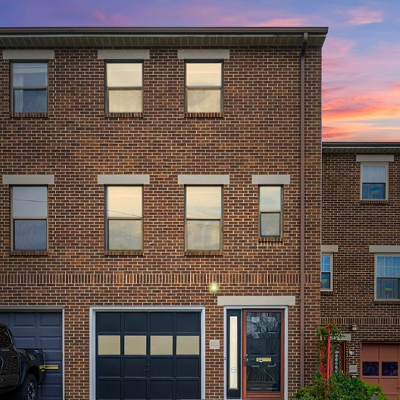Hey, city Public Works crews! Stop working so hard! Turns out the roads are in great shape. Members of Mayor Bill Peduto's Education Task Force? Your services are no longer needed. Our schools are already perfect.
Or so we've been told by the latest survey purporting to document the world's "Most Livable City," this one compiled by the Economist Intelligence Unit, a research group affiliated with the Economist magazine.
Pittsburgh, it turns out, ranks as the most livable city in the continental United States, out of 16 U.S. cities surveyed. We're the 30th most livable city of 140 surveyed worldwide. But here's what's truly impressive: Pittsburgh scored perfect 100s — a score which "is considered ideal," according to EIU — for its infrastructure and educational system.
That's right: Pittsburgh's roads and bridges, its schools and sewers, are considered ideal. At least by people who don't have to use them. I don't know what you people are always complaining about.
In fact, Pittsburgh was only one of 10 cities worldwide — and one of only two in the U.S. — to get a perfect score for its infrastructure. (Fully one-third of cities in the survey got perfect education scores, including notoriously dysfunctional Washington, D.C.)
As you might expect, this news was widely trumpeted by the region's marketing agency, VisitPittsburgh, and got coverage from the Pittsburgh Post-Gazette, KDKA and civic-booster site Next Pittsburgh. But oddly, no one seems to have asked the obvious question: "If the infrastructure is 'ideal,' what was that crater I nearly lost a tire inside this morning? A cave filled with leprechaun gold?"
The Economist explains its rankings this way: Each city was rated for "relative comfort" across 30 factors, and each factor was rated as "acceptable, tolerable, uncomfortable, undesirable or intolerable." (Pittsburgh, for example, is ranked as having a "tolerable" amount of corruption ... which is, I guess, the level at which your most recent police chief is a convict, but your most recent mayor is not.) The EIU then combined those scores into five broad categories, like "infrastructure" and "stability," and gave them a combined score.
Based on more detailed data provided to me by the good folks at VisitPittsburgh, our infrastructure score — which included factors like public transit, roads and water supply — rated "acceptable" across the board. And that qualified Pittsburgh for a perfect 100.
(In case you were wondering, Pittsburgh's lowest score was in the category of "stability," which ranks things like crime rates and the "threat of civil unrest/conflict." They must have been measuring us during the Luke Bryan concert.)
So the key here is not so much to excel, but to be thoroughly acceptable, like the boyfriend your dad approves of. As the EIU report itself says, the high-ranking cities "tend to be mid-sized cities in wealthier countries with a relatively low population density."
Maybe what most sets Pittsburgh apart, however, is not the rankings themselves so much as how much we care about them. City rankings are everywhere nowadays, but the local fixation on them dates back to 1986, when Rand-McNally identified us as the country's Most Livable City at the very moment a generation of families were leaving it. It's only natural that we embraced the study: You most want proof that your city is livable when nobody is living here.
But even though Pittsburgh has shaken off the rust of the 1980s, we can't help cheering ourselves at the release of each new totally arbitrary quality-of-life survey. Best city for retirees. Best city for singles. Best city for people under 30. Best city for people under 30 who want to date retirees.
It's the job of groups like VisitPittsburgh to tout this stuff, of course, and they do it well. And they've been joined by a social-media cottage industry of happy-news websites, only too pleased to share "Pittsburgh bucket lists" and document the cultural significance of parking chairs. Civic life in Pittsburgh often seems less concerned with making things better than with reassuring ourselves that everything is great.
But maybe the time to stop paying attention to these surveys is when they start giving advice no Pittsburgh driver would ever trust: Don't worry! Ignore those warning signs! The road ahead is perfect!














